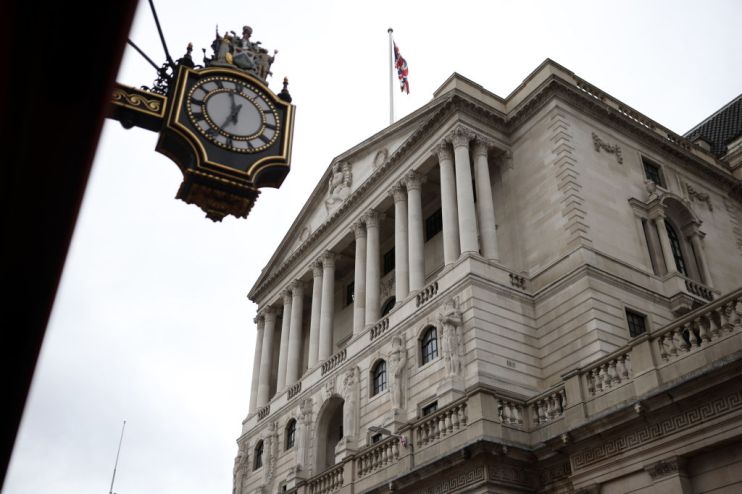Bank of England hikes rates for fifth time in a row and warns of 11 per cent inflation surge

The Bank of England today hiked interest rates for the fifth time in a row for the first time since it was given control of monetary policy a quarter of a century ago as it pushes to cool the highest rise in living costs for a generation.
A majority of the Bank’s nine rate setters, including governor Andrew Bailey, voted in favour of lifting borrowing costs 25 basis points to 1.25 per cent.
The move scuppered some investors’ bets on Threadneedle Street lifting rates 50 basis points, something it has not done since it was made independent in the late 1990s.
Three members of the committee backed a steeper shift. The other six voted for a smaller move. The Bank did signal it will “act forcefully in response” to “more persistent inflationary pressures,” suggesting a larger rise in the future is not off the table.
Markets spat out the decision. London’s FTSE 100 tumbled 2.4 per cent on the news, while the mid-cap FTSE 250 collapsed 2.66 per cent. The pound fell 0.44 per cent against the dollar to buy $1.2126.
Former monetary policy committee (MPC) member Andrew Sentance criticised the Bank for ignoring “the dangers of double digit price rises”.
“As expected, [the MPC] edged interest rates up again but they’re not sending a decisive warning shot to signal they will do what it takes to bring down inflation. They’re too concerned to fine-tune the path of GDP,” he tweeted.
The Bank raised its expected inflation peak to just over 11 per cent in October, driven by another upgrade to the energy price cap, casting doubt over whether the MPC can curb the cost of living with the current pace of tightening.
Prices are already nine per cent higher than they were a year ago, the quickest acceleration since the 1980s.
The US Federal Reserve yesterday went quicker than the Bank, lifting borrowing costs 75 basis points for the first time since 1994 to ease a four decade high inflation level of 8.6 per cent.
Other top central banks have recently moved quicker than Threadneedle Street, meaning today’s “relatively dovish” move “risks leaving the Bank lagging behind,” Paul Dales, chief UK economist at Capital Economics said,
“The Bank appears to have nudged open the door to rates rising further and faster,” Dales said, but added he thinks it will stick to lower rises and will eventually send rates to three per cent.
Governor Bailey and co have been accused of nudging inflation higher by leaving policy too accommodative for too long.
Ex-Bank chief Mark Carney, 57, said yesterday central banks need to “front-load” rate rises to catch their economies up with inflation.
UK monetary wonks are treading a fine line between reining in policy to tame inflation without dealing unnecessary damage to the economy.
The economy is in the teeth of a slump caused by households cutting spending in response to the cost of living crisis and the government ending Covid-19 spending.
Output has flatlined since the first month of this year and contracted 0.1 per and 0.3 per cent in March and April respectively.
The economy looks set to contract in the current quarter, the Bank said, and some experts have warned it will tip into a technical recession – two consecutive quarters of contraction – this year.